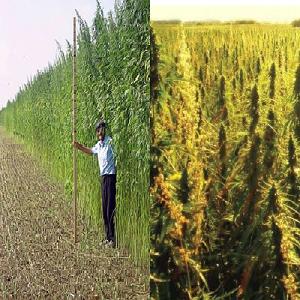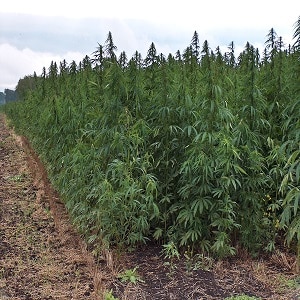WASHINGTON, DC – The national, single-issue, non-profit advocacy group Vote Hemp applauds the new resolution on industrial hemp that was adopted by delegates of the American Farm Bureau Federation at its 95th annual meeting in San Antonio, Texas last week, January 14, 2014. The policy resolution urges the repeal of the classification of industrial hemp as a controlled substance. The effort was lead by the Indiana Farm Bureau. The resolution, which falls under the “we oppose” category, reads:
“The classification of industrial hemp as a controlled substance.”
The Farm Bureau previously passed a policy resolution supporting industrial hemp research in 1995, which read:
“We recommend that [the] American Farm Bureau Federation encourage research into the viability and economic potential of industrial hemp production in the United States. We further recommend that such research includes planting test plots in the United States using modern agricultural techniques.”
The AFBF position in favor of decriminalizing industrial hemp cultivation is an auspicious boon to the hemp legalization movement, as currently the House version of the Farm Bill contains an amendment to legalize university research on industrial hemp in states that have removed barriers to the crop’s production. The American Farm Bureau Federation (AFBF) annual policy resolutions significantly influence both state and federal legislation on agriculture, food and interstate trade, and represent the majority voice of farmers around the country.
“We support the declassification of industrial hemp as a controlled substance because of the opportunity that it provides some farmers to diversify their operations and share in a new market opportunity. At a time when small farms are innovating and diversifying to remain competitive, we should provide every opportunity to increase farm incomes and allow the next generation the ability to continue living off the land as their families have for generations,” said Kyle P. Cline, Policy Advisor with the Indiana Farm Bureau. “Industrial hemp is one such opportunity that may work for some farmers in certain regions. Furthermore, industrial hemp will allow the U.S. farmer to share in income that is currently going overseas. Right now, it is legal to import hemp but illegal to produce it. Therefore, there is no opportunity currently to share in the profit.”
“The AFBF position on removing hemp from the Controlled Substances Act demonstrates a positive shift at the grassroots level, it shows that farmers all over the U.S. see industrial hemp for what it is—a versatile, low-input crop,” said Eric Steenstra, President of Vote Hemp. “Farmers see hemp imported from China, Canada, and realize that they’re missing out on the growing U.S. market for hemp. That farmers are coming forward with formal support for policy change in favor of hemp legalization is a huge step forward and Congress should follow their lead and pass legislation to once again allow hemp farming under federal law.”
The Farm Bureau’s position on industrial hemp demonstrates the widespread support among national farming organizations for a change in the federal government’s position on hemp. The National Association of State Departments of Agriculture (NASDA) previously passed a resolution that “supports revisions to the federal rules and regulations authorizing commercial production of industrial hemp.” The National Grange voted to support hemp in 2009, stating that it “supports research, production, processing and marketing of industrial hemp as a viable agricultural activity.” The National Farmers Union (NFU) passed their first pro-hemp resolution at their 2010 convention. The policy was updated at their 2013 convention and states that the NFU supports:
“Urging the president, attorney general and Congress to direct the U.S. Drug Enforcement Administration (DEA) to reclassify industrial hemp as a non-controlled substance and adopt policy to allow American farmers to grow industrial hemp under state law without affecting eligibility for USDA benefits.”
Grown commercially in Canada since 1998, hemp has become one of the most profitable crops for farmers north of the U.S. border. While American farmers often net less than $100 per acre for soy and corn, Canadian farmers net an average of $250 per acre for hemp.
To date, thirty-two states have introduced pro-hemp legislation and ten states have defined industrial hemp as distinct and removed barriers to its production: California, Colorado, Kentucky, Maine, Montana, North Dakota, Oregon, Vermont, Washington, and West Virginia. However, despite changes to state laws allowing hemp, farmers in these states risk raids by federal agents, prison time and land forfeiture if they plant the crop, due to the failure of federal policy to distinguish oilseed and fiber varieties of Cannabis (i.e., industrial hemp) from drug varieties.
Currently, Vote Hemp and the Hemp Industries Association (HIA) are organizing Hemp History Week, a national campaign sponsoring local educational and retailer events in all 50 states from June 2-8, 2014. This industry-wide project involves hundreds of hemp manufacturers, retailers and volunteers. For more information, visit: www.HempHistoryWeek.com.









